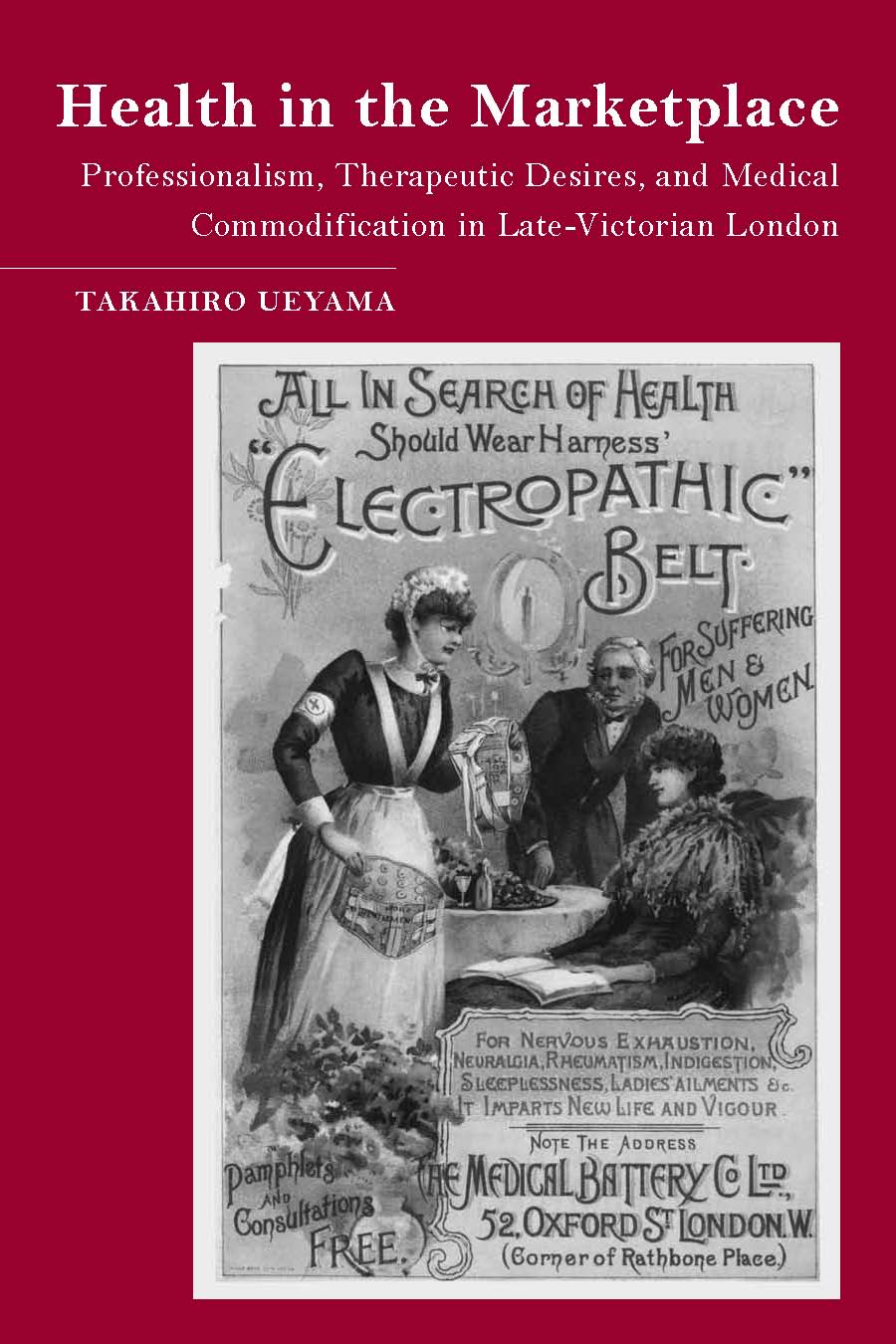
![]()
Much like consumers today, late-nineteenth-century Londoners lived in a mass culture of commodified abundance and conspicuous consumption. Their consumer fetishism was fully represented by their avid pursuit of health-related services and medicinal goods: the market was rife with brand-name patent medicines such as Dr. Scott's Little Liver Pills and Dr. William's Pink Pills for Pale People, and city-dwellers frequently bought patented medico-electrical appliances such as Pulvermacher's Electric Chains or Harness' Electropathic Belt.
In this highly original book, Takahiro Ueyama recounts a vivid narrative—populated by long-forgotten entrepreneurs and charlatans—that accounts for the way in which socio-economic and professional interests came into conflict among medically trained doctors, electrical engineers, manufacturers of patent medicines, and quack physicians.
Thoroughly grounded in research into health commodification in the late nineteenth century, this book demonstrates that Victorians had issues very much like ours today. Like us, they wrestled with ambiguities about drug effectiveness and regulation. Like us, they worried about the uncertain boundaries between science and quackery. They, too, were baffled by the competing claims of orthodox and alternative medicine. They, too, went in for massage therapy and erotic quasi-medical services. Such was reality in late-nineteenth-century Britain, and it was the root of what we observe in our highly capitalized modern world, where profit-driven commercialism ubiquitously intrudes into the medical domain.
Praise for the book:
"This work bursts with fine research, excellent ideas, and a superb topic. I learned a great deal from it. I particularly admire the way the book charts the tensions, affiliations and conflicts between engineers, advertisers, manufacturers of patent medicines, medical doctors, and consumers of health-related services and goods. The author produces a complex but intelligible narrative which accounts for the way socio-economic and professional interests both competed and overlapped among these different groups.
This study illuminates major concerns and issues in contemporary medicine and society. We far too often take for granted the alliance between capitalism, engineering, chemistry, research and development, and medicine in our world today. This book shows us that there was nothing inevitable about the process that led these different groups to cooperate with one another under integrated corporate entities."
—Seth Koven, Associate Professor of History, Rutgers University
"Well before the efflorescence of late-Victorian commodity culture, medical capitalism had permeated—and in many ways compromised—the seemingly well-established purity of medical professionalism. By situating medical personnel in this commercial context, Ueyama shows that the medical professions in the nineteenth century were in fact more internally segmented and less monolithically controlled than has traditionally been argued."
—Timothy Lenoir, Kimberly Jenkins Chair for New Technologies and Society, Duke University
Takahiro Ueyama is Professor in the History Unit of the Faculty of Economics, Sophia University, Tokyo. Stanford-trained, he has twice received a Fulbright Fellowship, in addition to an Abe Fellowship, in recognition of the importance of his work.
336 pages. 40 illustrations. 2010.
ISBN 0-930664-29-9